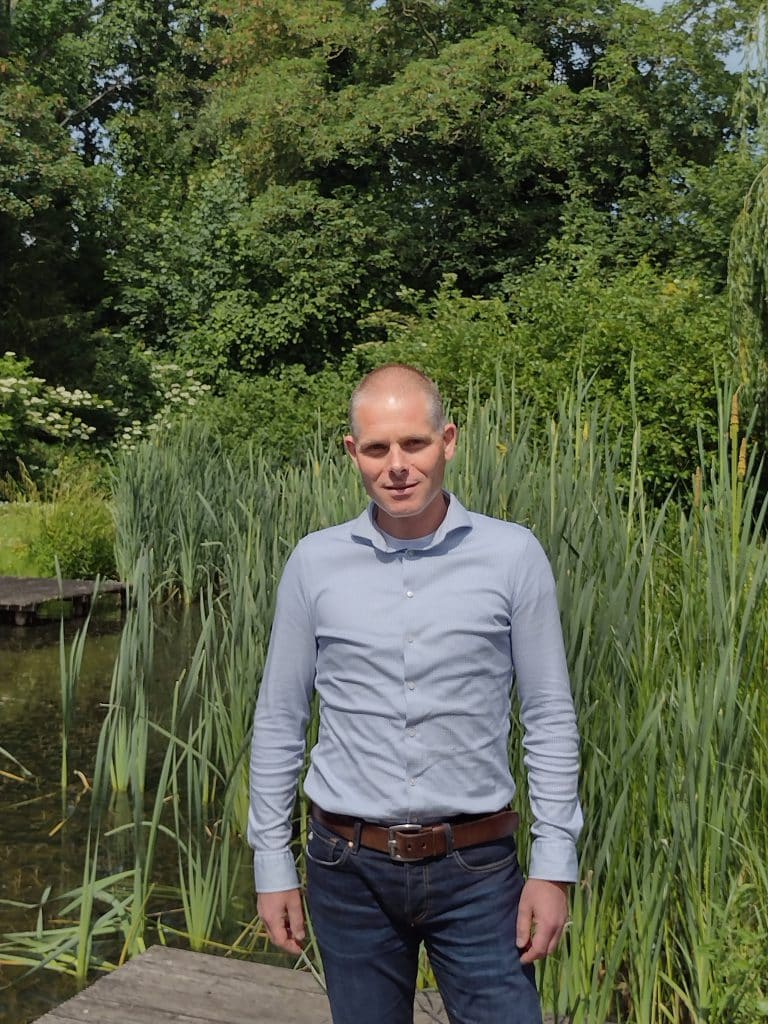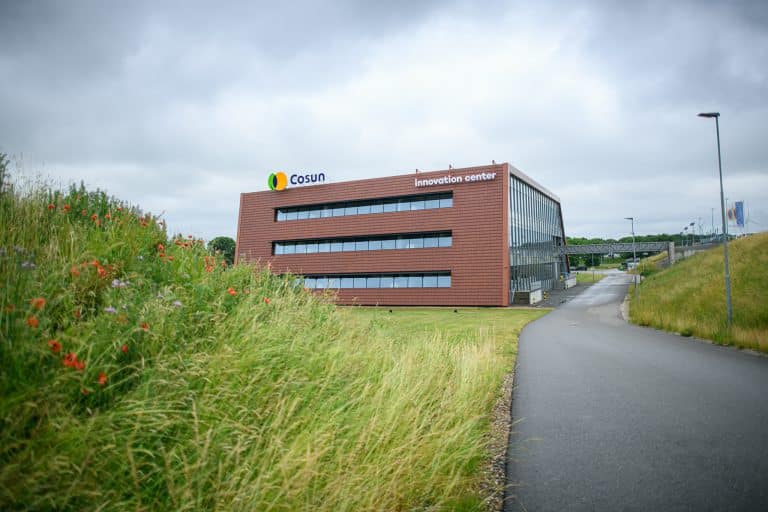Johan: “Our team is coordinating the SCO2RE+ programme on behalf of Cosun. SCO2RE+ stands for Strategic CO2 Reduction. It was a working title that stuck.” Within Cosun, the programme is serving as a boost for increasing sustainability. “It’s not about individual projects like a heat pump or solar farm, which are more for the business groups themselves, we focus on how everything fits together. We facilitate the pooling of knowledge and roadmap data, and see where the most impact can be made using the resources available.”
Green by Design
SCO2RE+ is seizing the opportunity to challenge the boards of the various business groups about their growth plans. Johan: “Cosun’s future growth must be ‘Green by Design’. This means that, when considering the future, we make smart choices upfront, for example when building a new plant. Even if it’s not profitable right now.” Johan believes that this way of thinking about new processes and products should become the norm: “There’s still a real tendency to adopt traditional approaches because the alternatives aren’t always clear yet. SCO2RE+ helps clarify these alternatives.” With ‘Green by Design’ as the starting point, organisational growth need not be an obstacle to achieving reduction goals. “You don’t need to reduce what you don’t create,” says Johan.
From paper to action
What started with an hour a week in 2018 has grown into a full-time job for both of Johan and Bertram. “We’ve now moved from the on-paper phase to the action phase,” Bertram explains. “We now have to start making budget choices as an organisation. Significant investment will be required to meet our goals. The various business groups have already taken steps and have developed roadmaps for projects that are to be implemented. For example, the V-Rise project by Cosun Beet Company.” Rising energy prices and efficiency measures are offering not only a social stimulus, but also an economic incentive for increasing sustainability. “We currently talk a lot about investments and costs, but the bottom line is that the transition will end up making us money. The challenge is in the speed and affordability with which we can make it happen. The V-Rise project, for example, has reduced emissions significantly, but it is a €100+ million project.”
Power grid as bottleneck
At the factory level, measures such as e-boilers and heat pumps offer opportunities for short-term reductions in energy consumption or CO2 emissions. A new heat pump at Aviko Rixona in Warffum will achieve gas consumption reduction equivalent to about 550 households. “The technology to reduce energy consumption and make the transition is there. It’s just the conditions for implementing them aren’t always in place,” Johan points out. “For example, subsidies, permits and connections to the electricity network.” This is why the intermediate step of a 30% reduction, set by Cosun for 2025, will be difficult to achieve. “We have plenty of projects in the pipeline, but they aren’t always feasible yet,” he adds. “This is why SCO2RE+ also includes a lobbying role,” Bertram explains. “We’re talking – often alongside other companies – to government authorities and politicians to ensure that the transition, and what we as a business community need to achieve it, get on to the agenda.”
Scope 3
Heading towards 2030, the focus within SCO2RE+ is primarily on scope 1 and 2 of the Greenhouse Gas Protocol, the international leading standard in terms of greenhouse gas emission reduction: reducing your own gas and electricity consumption. In August 2022, the programme was expanded from SCO2RE to SCO2RE+, this means that scope 3 was also placed more explicitly on the agenda. Bertram: “Scope 3 includes all the emissions that do not come directly from your own operations, for example, from the growing of raw materials such as sugar beets, potatoes and chicory. NGOs are putting a lot of pressure on scope 3 emissions. In March 2021, the court in The Hague ruled that Shell bears the responsibility for its scope 3 emissions. This means scope 3 emissions will also become increasingly important for companies. However, you first have to define them.” Making these emissions visible and measurable requires cooperation in the supply chain. Bertram: “in order to reduce emissions, stakeholders have to work together.”
Capturing carbon
As emissions throughout the supply chain become increasingly important, growers will also become more affected. Johan: “Ultimately, they’ll make a significant contribution to reducing CO2 emissions in the supply chain. To become climate neutral, you also have to capture carbon. Hopefully, there’s also a potential revenue model there for growers.”


